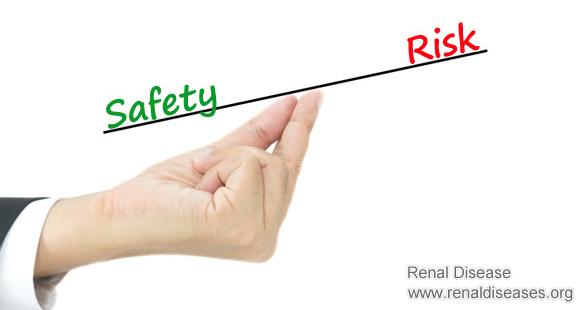Whatsapp: +8615512139310
- Email us:
 When proteinuria and hematuria turn negative, it does not mean your chronic kidney disease is cured. Because the disease may come back now and then. How to determine the risk of relapse of kidney disease? Read on to learn more information.
When proteinuria and hematuria turn negative, it does not mean your chronic kidney disease is cured. Because the disease may come back now and then. How to determine the risk of relapse of kidney disease? Read on to learn more information.
There are many drugs and methods to reduce urinary protein, such as glucocorticoids, immunosuppressive agents, traditional Chinese medicine, Cordyceps preparation, ACEI/ARBs, etc. combined with low salt, low fat, low amount of high quality protein diet, weight loss, sugar control, reasonable exercise and rest, most patients with nephritis and Nephrotic Syndrome can reduce 24-hour urinary protein to less than 1g. In some patients, urinary protein can be reduced to less than 0.5g, and creatinine can be restored after a temporary increase. We call it "clinical cure" or "cured" temporarily.
However, for young patients with kidney disease, clinical cure is not enough, and there is a risk of relapse.
1. Patients with mild proteinuria (24-hour proteinuria less than 1g): 24h urine protein is increased by over 20%, and reaches 1g.
2. For patients with Nephrotic Syndrome (24-hour urinary protein > 3.5 g) : the 24-hour urinary protein is greater than 3.5 g (adult), and the plasma albumin is less than 30 g/l.
Can we see whether kidney disease is cured from urinary protein, urine occult blood, and serum creatinine?
No, we can not.
Urinary protein is relatively insensitive. If the permeability change of glomerular capillary loops is not serious enough, urinary protein will not leak out; serum creatinine is a well-known indicator of retardation.
Cure is a relatively high standard, urinary protein, urinary occult blood, serum creatinine do not have the ability to evaluate the risk of minor renal injury and relapse.
There are three indicators, which can better reflect the source of changes in urinary protein and blood creatinine.
1. Sensitive indicators
When the disease is in remission, we should see whether "sensitive indicators" are abnormal or not. Sensitive indicators have a role, that is, when there is minor kidney damage, they can also reflect the disease.
For example, cystatin C and c-reactive protein in the blood, and microalbumin and β2-microglobulin in the urine.
2. Immune function
Kidney inflammation that causes abnormal sensitive indicators above is mostly caused by abnormal immunity. Kidney disease cannot be cured without restoration of immunity.
3. Oxidative stress
The cause of kidney disease is immune abnormality. The root cause of immune abnormality is oxidative stress, which comes from a large number of oxygen free radicals produced by mitochondria of cell organelles.
The oxidative stress state index (SOD) is indispensable to determine whether kidney disease will relapse or not. If oxidative stress is not alleviated, kidney disease is prone to recurrence.
Repeated renal biopsy and pathological injury can also indicate whether the kidney has recovered pathologically, but it is not practical to perform renal biopsy for every patient who has been clinically cured.
From these three laboratory tests, we can more easily see whether there is a potential risk of recurrence of kidney disease. If these three indicators are stable and normal for 2-5 years, we can say that kidney disease is cured. If you still have any questions on kidney disease, please leave a message below or contact online doctor.